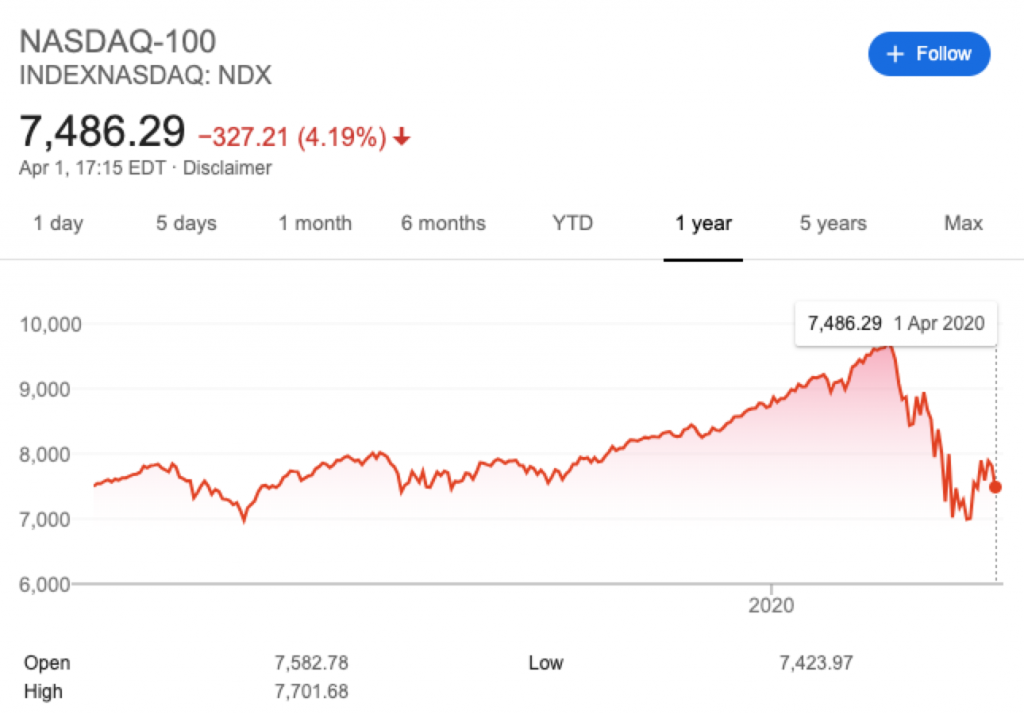While the timing isn’t perfect to either start a new business or invest in a business, it’s always good to prepare and plan for when the timing is right. The current state of the national economy in the US provides us with some insights on how to get through difficult times. Some companies are doing better than others and will continue to do so if the situation gets worse. Why is that?
Table of Contents
What is a Defensive Company?
You can determine whether a company is defensive or not by looking at how publicly listed companies performed during the financial crisis of 2008 and smaller downturns in the last 12 years since then. A more recent example would be to monitor how companies are doing during the current coronavirus outbreak which is having a massive impact on the stock markets and private companies alike.

You want to find companies whose sales and earnings remain stable under severe market conditions. Another good indicator is that sales and profits stay stable both when the economy is strong and when it’s on a downturn. The advantages of a defensive company usually stem from their stability. Typically, defensive companies make and sell products that are evergreen, no matter economic conditions, such as necessities that everyone needs or products that help people get through difficult times. A quick Google search will likely provide you with a list of strong defensive companies having a good track record of surviving in difficult times.
When you started identifying a couple of defensive companies, you can start drawing some conclusions based on common denominators, most often coming down to similar business areas or business models.
A Couple of Defensive Business Sectors
So, you will probably find that most defensive companies belong to specific business sectors and industries. We will go through a couple based on the risk profile from high to low.
Higher Risk Sectors
One of the biggest struggles for a company is to make people return to their product or service and remain as paying customers. You want people to get hooked and return to using a product or service again and again. Some products, such as online casinos are naturally engaging, where people return to play in the pursuit of winning money. There is a value proposition in online casinos where a person could wager as little as one US dollar and have the chance to get substantial returns by winning a jackpot on a slot machine. People have gambled since the beginning of civilization and today gambling is widespread and easily accessible through the internet and mobile devices.
The online casino industry is a relatively young industry, yet it’s blooming and it can be profitable even for small sized companies. We had a word with the PR representative of LiveCasinoKings, a small marketing company, operating in the online gambling industry. We contacted them to find out how smaller sized companies are dealing with the current situation. Even during these times of uncertainty, it’s business-as-usual for them and they continue to invest in the same marketing initiatives because people tend to continue to play even during financial downturns. Though he did advise that people do play to a lesser extent, they still continue to do so, and people with very strong private finances continue to play just the same. This enables smaller companies and larger operators such as The Stars Group to perform better than the broader market because they can maintain stable earnings and revenues.
Medium Risk Sectors
Businesses that deal with consumer goods such as food and beverage is pretty much the quintessence of defensive. People always need to buy food and beverages to survive despite current financial conditions. While people go out and eat less, spend less money on non-essential or more expensive food or beverage options, they continue to buy essential and cheap items.
One such company is Coca Cola, this company doesn’t need a lot of introduction. It’s good to know that they have extensive food holdings besides their beverage products, and their entire portfolio consists of over 500 different brands with availability in more than 200 countries.
After the market crash of 1987, a well-known investor by the name of Warren Buffett made a value play on Coca Cola. The company had taken a lot of betting, such as every other company. Warren recognized that it was a great brand, a well-run company dealing with consumer goods that will always be in demand and had remained relatively stable earnings and was poised for recovery. So he took a bet and bought over 6% of the company for $1 Billion US Dollars in the consecutive years. The rest, as they say, is history.
Lower Risk Sectors
Infrastructure and utility are extraordinarily stable and low-risk options. We always need water, electricity, and internet service providers, for example. These industries tend to lag behind during economic expansions, but they do provide a lot of padding in economic downturns as the demand for services remains stable.
One such utility company is Aqua America, which is one of the largest water companies in the US.

